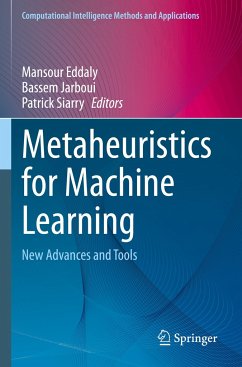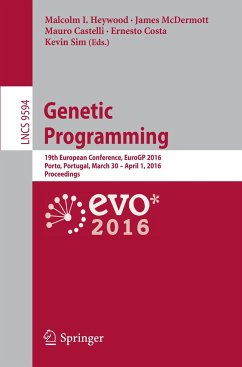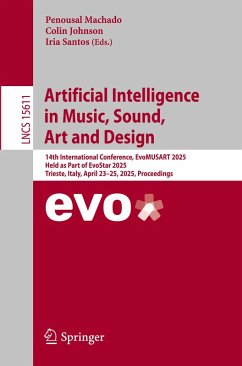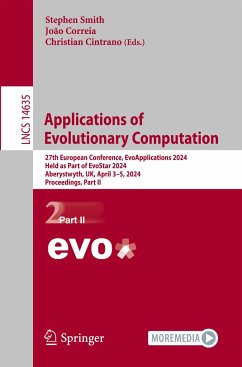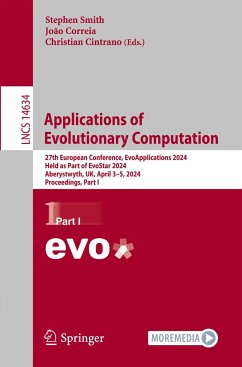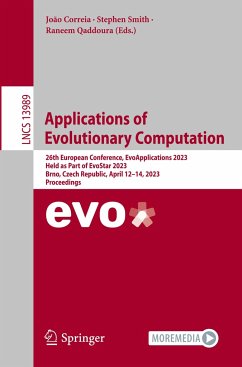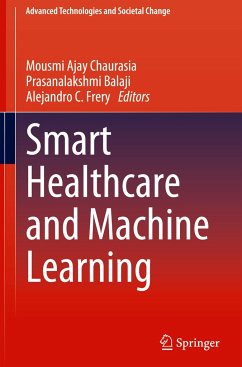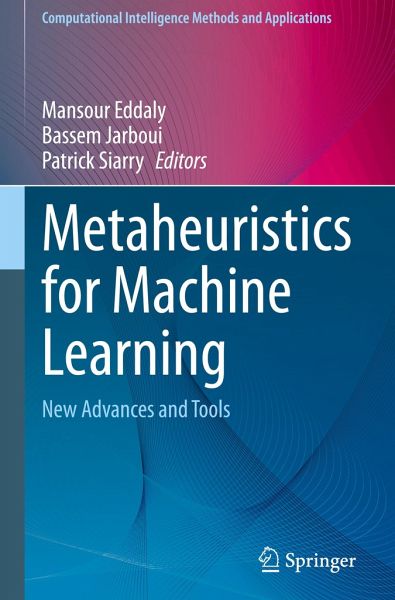
Metaheuristics for Machine Learning
New Advances and Tools
Herausgegeben: Eddaly, Mansour; Jarboui, Bassem; Siarry, Patrick

PAYBACK Punkte
65 °P sammeln!
Using metaheuristics to enhance machine learning techniques has become trendy and has achieved major successes in both supervised (classification and regression) and unsupervised (clustering and rule mining) problems. Furthermore, automatically generating programs via metaheuristics, as a form of evolutionary computation and swarm intelligence, has now gained widespread popularity. This book investigates different ways of integrating metaheuristics into machine learning techniques, from both theoretical and practical standpoints. It explores how metaheuristics can be adapted in order to enhanc...
Using metaheuristics to enhance machine learning techniques has become trendy and has achieved major successes in both supervised (classification and regression) and unsupervised (clustering and rule mining) problems. Furthermore, automatically generating programs via metaheuristics, as a form of evolutionary computation and swarm intelligence, has now gained widespread popularity. This book investigates different ways of integrating metaheuristics into machine learning techniques, from both theoretical and practical standpoints. It explores how metaheuristics can be adapted in order to enhance machine learning tools and presents an overview of the main metaheuristic programming methods. Moreover, real-world applications are provided for illustration, e.g., in clustering, big data, machine health monitoring, underwater sonar targets, and banking.





